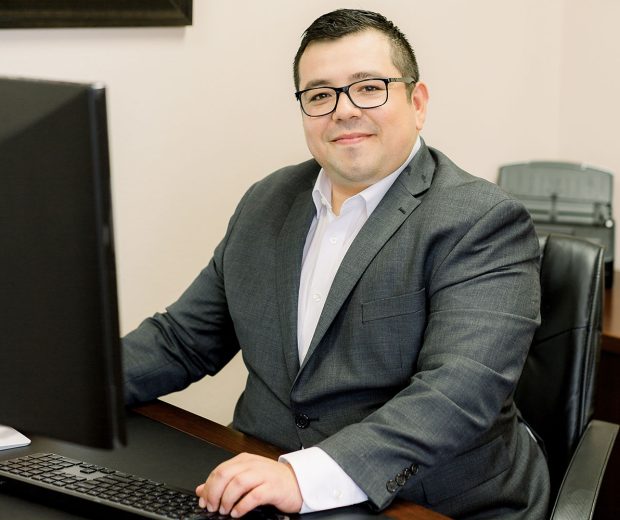 CONTACT US
CONTACT US

And Your Business

Chico Estate Planning Attorney & Business Lawyer
Top-Rated estate & business law firm
Chico Estate Planning Attorney & Business Lawyer
We provide legal services in Estate Planning, Probate, Elder Law, Trust Administration, Business Law.

Probate Attorney
Wealth and Asset Protection
An Attorney with the Skills and Experience You Need
PRACTICE AREAS
Have a Lawyer on Your Side

Chico Business Contracts Lawyer
Legal services are provided in forming, operating, and protecting your business.

Chico Business Formation Lawyer
Crafting solid foundations for your business success with Legal Norcal.

Chico Business Lawyer
Legal services are provided in forming, operating, and protecting your business.

Chico Business Startup Lawyer
Starting a business in Chico and need legal guidance? Our experienced business startup lawyer can help with business formation, litigation, and more.

Chico Business Transaction Lawyer
Starting a business in Chico and need legal guidance? Our experienced business startup lawyer can help with business formation, litigation, and more.


Chico Estate Planning Attorney
A proper Estate Plan provides peace of mind and avoids probate.


Chico Probate Lawyer
Probate is the process of administering an estate of someone who has died.

Chico Trust Administration Lawyer
Trust Administration refers to the identification of Trust property and assets


Frequently Asked Questions
Estate planning is the process of creating a comprehensive strategy for managing and distributing your assets upon your death or incapacity. It involves drafting legal documents such as wills, trusts, and powers of attorney to ensure that your wishes are carried out, your loved ones are provided for, and your assets are preserved.
Estate planning is crucial for several reasons:
- It allows you to maintain control over who inherits your assets, minimizing disputes and ensuring your beneficiaries receive what you intend.
- It helps minimize estate taxes, reducing the financial burden on your heirs.
- Estate planning can include provisions for healthcare decisions, providing peace of mind and ensuring your medical preferences are respected if you become incapacitated.
Overall, estate planning is a responsible way to protect your legacy and your loved ones’ financial well-being.
To initiate the estate planning process, follow these seven steps:
- Determine Your Goals: Clearly define your objectives, such as asset distribution, healthcare preferences, and minimizing taxes.
- Compile Financial Information: Gather details on assets, debts, and financial accounts.
- Choose Key Players: Select an executor, trustee, and power of attorney for finances and healthcare.
- Draft Essential Documents: Create a will, living will, and power of attorney documents, and consider trusts if needed.
- Consult an Attorney: Engage an experienced estate planning attorney for legal guidance and document drafting.
- Review and Update: Periodically revisit your plan to adapt to life changes, such as marriage, births, or financial shifts.
- Inform Loved Ones: Share your plan with family members and beneficiaries to ensure they understand your wishes.
Starting the process with these steps can lay the foundation for a comprehensive estate plan.
A will, often referred to as a last will and testament, is a legally binding document that serves as a crucial element of estate planning. It articulates your desires regarding the distribution of your assets, designates a guardian for minor children, and appoints an executor to oversee your affairs following your passing.
A will’s primary purpose is to ensure your assets are bequeathed to the individuals or organizations of your choosing, preventing potential disputes among heirs. It also provides a means to safeguard the well-being of any minor children by naming a guardian who will care for and raise them in accordance with your wishes. Furthermore, by designating an executor, you streamline the process of managing your estate after your death, making it more efficient and less burdensome for your loved ones.
Ultimately, a will offers you peace of mind, knowing that your legacy will be protected and your intentions honored, making it an essential component of comprehensive estate planning.
Yes, you can and should update your will when your circumstances change. Life events such as marriage, divorce, the birth or adoption of children, the acquisition of significant assets, or the passing of beneficiaries may necessitate revisions to your will. By keeping your will current, you ensure it accurately reflects your wishes, preventing potential complications and disputes during the estate settlement process. To make updates, consult with an estate planning attorney to ensure that the changes comply with legal requirements and are properly documented. Regularly reviewing and amending your will is a responsible practice to maintain its relevance as your life evolves.
A living trust is a legal arrangement in which you transfer your assets into a trust during your lifetime and designate a trustee to manage and distribute those assets according to your instructions. Unlike a will, which only takes effect after your death, a living trust is active while you are alive and can continue to operate after your passing. One key distinction is that assets placed in a living trust typically avoid probate, a lengthy and public legal process, resulting in a quicker and more private distribution of assets. Additionally, a living trust can offer more flexibility for managing assets, especially in cases of incapacity, making it a valuable estate planning tool alongside a will.
A trust can be a powerful tool in estate planning for several reasons. It allows for the efficient and private transfer of assets to beneficiaries, often bypassing the lengthy and public probate process. Trusts also provide flexibility in managing and distributing assets, enabling you to specify disbursement conditions or timing. They are beneficial for complex family situations, like blended families or individuals with minor or disabled beneficiaries. Trusts can offer substantial tax advantages, helping minimize estate and income taxes. Overall, trusts provide a versatile means to protect and control your assets, ensuring they benefit your loved ones according to your wishes.
Appointing a guardian for your minor children in your estate plan is highly recommended and often crucial. If you pass away while your children are still minors and have not designated a guardian, the court will determine their custodial arrangements. By specifying a guardian in your estate plan, you retain control over who will care for and raise your children in your absence. This ensures that your children’s well-being, values, and living situation align with your preferences. It’s a responsible and caring step in estate planning that provides both emotional security and stability for your children during a challenging time.
Probate is the legal process through which a deceased person’s assets are distributed, debts are settled, and their estate is administered under court supervision. It can be time-consuming, costly, and public, as it involves court proceedings that validate the will, identify heirs, and oversee asset distribution.
To avoid or minimize probate, you can employ several strategies. Creating a living trust allows you to transfer assets outside of probate, as the trust owns them. Designating beneficiaries on accounts like life insurance policies and retirement accounts can also bypass probate. Additionally, gifting assets during your lifetime, setting up joint ownership, or using payable-on-death designations can help reduce the assets subject to probate. Careful estate planning with legal counsel can help you choose the best approach for your specific situation.
Selecting an executor for your estate is a critical decision in estate planning. Your choice should prioritize trustworthiness, as the executor will have access to your assets and financial information. They should also be responsible, organized, and capable of managing administrative tasks such as debt settlement and asset distribution. Availability is another key factor; the chosen individual should be willing and able to commit the necessary time to fulfill the role effectively. While prior knowledge of financial matters and legal processes is beneficial, it’s not a strict requirement, as professionals like attorneys or accountants can provide guidance. Additionally, consider family dynamics and potential conflicts when making this choice, and it’s advisable to name an alternate executor as a backup plan if the primary executor cannot fulfill their duties. Consulting with your attorney can help you make an informed decision aligned with your estate’s needs.
A power of attorney (POA) plays a pivotal role in estate planning by granting an individual, known as the agent or attorney-in-fact, the legal authority to make financial and legal decisions on behalf of the grantor (the person creating the POA).
There are two primary types:
- Financial POA: This authorizes the agent to manage financial matters, including banking, investments, and property transactions, especially if the grantor becomes incapacitated.
- Medical POA: Also known as a healthcare proxy, it empowers the agent to make medical decisions when the grantor cannot do so, ensuring that the grantor’s healthcare preferences are honored.
In essence, a POA ensures that trusted individuals can act in your best interests if you’re unable to make decisions, making it a valuable component of comprehensive estate planning.
To safeguard your assets from estate taxes, you can employ various strategies in your estate planning. One effective method is making lifetime gifts to heirs, utilizing the annual gift tax exclusion and lifetime gift tax exemption to gradually reduce the taxable estate. Additionally, irrevocable trusts like the Irrevocable Life Insurance Trust (ILIT) or Grantor Retained Annuity Trust (GRAT) can be established to remove assets from your taxable estate while retaining some benefits or income. Spousal transfers through the unlimited marital deduction enable tax-free asset transfers to a spouse, though it’s crucial to consider potential tax implications upon their passing. Charitable giving and state-specific planning are other avenues to explore, with the guidance of an experienced estate planning attorney, tailored to minimize estate taxes while preserving your wealth for your heirs.
Yes, you can establish a charitable foundation as a meaningful component of your estate plan. This philanthropic endeavor allows you to leave a lasting legacy by contributing to causes or charities that align with your values and passions. By creating a charitable foundation, you can ensure ongoing support for the organizations or initiatives you care about even after your passing. This can also offer potential tax advantages, as donations to qualified charitable foundations are often tax-deductible. Consulting with an estate planning attorney can help you navigate the process and ensure that your charitable foundation is established and managed according to your wishes and in compliance with legal requirements.
A healthcare directive, also known as an advance healthcare directive or a living will, is a legal document specifying your medical preferences and decisions if you become incapacitated and unable to communicate your wishes. It outlines instructions regarding medical treatments, end-of-life care, and organ donation. It appoints a healthcare proxy or agent to make medical decisions on your behalf.
This document is vital because it ensures that your healthcare choices are respected, alleviates the burden of decision-making for loved ones, and provides clarity to healthcare professionals during critical moments. Having a healthcare directive empowers you to maintain control over your medical care, even when you cannot express your preferences, promoting peace of mind for you and your family.
It’s advisable to review and update your estate plan periodically, typically every three to five years or when significant life events occur. Major life changes, such as marriage, divorce, the birth or adoption of children, the death of a beneficiary, substantial financial shifts, or a move to a different state, can necessitate revisions to your plan. Additionally, changes in tax laws or your financial goals may warrant updates. Regularly reviewing your estate plan ensures that it remains aligned with your current circumstances, maximizes its effectiveness, and reflects your evolving wishes, ultimately providing peace of mind for you and clarity for your loved ones. Consulting with an estate planning attorney can help ensure your plan stays up-to-date and comprehensive.
Working with Legal Norcal for estate planning offers several advantages. Their experienced estate planning attorneys can provide personalized guidance tailored to your unique needs and goals. They have a deep understanding of local laws and regulations, ensuring your plan complies with relevant legal requirements. Legal Norcal can help you minimize tax liabilities, protect assets, and efficiently transfer wealth to heirs. They can also assist with complex matters like trusts, charitable giving, and healthcare directives. Moreover, their client-focused approach ensures that your wishes are understood and prioritized, providing peace of mind as you secure your legacy and protect your loved ones’ financial future.
Attorney Daniel Rodriguez at Legal Norcal is highly experienced in estate planning matters. With a strong track record in the field, he brings extensive knowledge and experience to assist clients in crafting effective estate plans. Daniel is well-versed in a wide range of estate planning strategies, including wills, trusts, probate avoidance, tax optimization, and healthcare directives. His depth of experience allows him to provide tailored solutions that meet each client’s unique needs, ensuring that assets are protected, beneficiaries are provided for, and estate tax liabilities are minimized. Clients can rely on Legal Norcal’s skilled attorney, Daniel Rodriguez, to navigate complex estate planning issues with confidence and precision.
Legal Norcal can assist you in establishing various types of trusts to meet your estate planning needs. This includes revocable living trusts, which help avoid probate and manage assets during your lifetime, and irrevocable trusts like irrevocable life insurance trusts (ILITs) or charitable remainder trusts, which offer tax advantages and asset protection. They can also guide you through special needs trusts to provide for disabled loved ones and testamentary trusts established within a will to manage assets for beneficiaries. With Legal Norcal’s help, you can create trusts that align with your goals, whether they involve asset preservation, minimizing estate taxes, or ensuring the well-being of your heirs.
Yes, Legal Norcal can assist with special needs trusts. These trusts are vital for individuals with disabilities, as they enable the management of assets to provide for their long-term care and quality of life without jeopardizing government assistance programs like Medicaid and Supplemental Security Income (SSI). Legal Norcal’s experienced attorneys can help you establish and administer special needs trusts, ensuring that the beneficiary’s financial well-being is safeguarded while preserving their eligibility for essential benefits. Their experience in this area allows you to navigate the complex regulations and legal requirements associated with special needs trusts, providing peace of mind for both you and your loved one with special needs.
To schedule a consultation with us at Legal Norcal, you can typically start by visiting our website. Look for a “Contact” or “Consultation Request” page, where you can provide your contact information and a brief description of your legal needs. Alternatively, you can call us or send an email to reach out to our office. Our staff will then assist you in setting up a consultation with one of our experienced attorneys, who can assess your situation, provide legal advice, and guide you through the next steps of your legal matter.
The timeline for completing an estate plan can vary depending on its complexity and individual circumstances. For a straightforward estate plan involving a will, power of attorney documents, and healthcare directives, it may take a few weeks to a couple of months. More intricate plans, including trusts, charitable giving strategies, or complex family dynamics, can extend the process to several months or even longer. Additionally, the time frame may be influenced by the responsiveness of the client in providing necessary information and reviewing draft documents. It’s crucial to prioritize thorough planning over speed to ensure your estate plan effectively meets your needs and goals. Consulting with an experienced attorney can provide a clearer estimate based on your situation.
Administering a trust after the grantor’s passing typically involves several steps:
- The trustee, often appointed by the grantor, gathers and identifies all trust assets.
- They notify beneficiaries and creditors of the grantor’s death and file necessary tax returns.
- The trustee manages the trust assets, paying debts and expenses and ultimately distributing assets to beneficiaries according to the trust’s terms and timeline specified by the grantor.
The process concludes with the trustee accounting for all transactions and actions taken during the administration. It’s a fiduciary duty to manage the trust prudently and in the best interests of the beneficiaries, ensuring the grantor’s wishes are faithfully executed.
Yes, Legal Norcal can provide valuable assistance with estate planning for blended families. Blended family dynamics often involve complex considerations, such as stepchildren, ex-spouses, and differing inheritance goals. Legal Norcal’s experienced estate planning attorneys can help you navigate these matters by tailoring a comprehensive plan that addresses your unique family situation. They can assist in structuring trusts, wills, and other estate planning documents to ensure that assets are distributed according to your wishes while also considering the financial security and well-being of all family members involved. With their guidance, you can create a plan that promotes harmony and clarity in the distribution of assets within your blended family.
For your initial consultation with Legal Norcal, it’s helpful to come prepared with critical documents and information.
These may include:
- Personal Information: Your full legal name, contact details, and identification.
- Financial Information: An inventory of your assets, liabilities, income sources, and tax documents.
- Existing Legal Documents: Any current wills, trusts, powers of attorney, or healthcare directives.
- Family Information: Details about your spouse, children, beneficiaries, and their contact information.
- Specific Goals: Clearly communicate your estate planning objectives and any concerns.
- Questions: Prepare a list of questions or topics you’d like to discuss with the attorney.
This information will help Legal Norcal understand your unique situation and provide tailored advice during your consultation, ensuring a productive and informative discussion about your estate planning needs and goals.
Yes, Legal Norcal offers a range of legal services beyond estate planning. They handle various practice areas, including elder law, probate, trust administration, and business law. In addition to helping clients create comprehensive estate plans, they can assist with matters related to the elderly, such as long-term care planning and guardianship. Their experience extends to guiding clients through the probate process and administering trusts. Furthermore, Legal Norcal provides legal advice and services for businesses, covering areas like contracts, entity formation, and business transactions. Clients can rely on Legal Norcal for a wide spectrum of legal needs, making them a versatile resource for legal guidance and assistance.
LATEST BLOG
Latest Legal Updates

Should I Create an LLC for My Rental Property in California?
Generating steady rental income via your new real estate venture sure sounds appealing, But before visions of carefree cash flow flood your mind, we need

Forming a Professional Corporation in California: What to Know
So you’re a licensed professional in California—maybe an accountant, architect, therapist, or attorney—considering forming your own professional corporation. Smart move! Professional corporations come with appealing

Keeping It in the Family: Business Succession Planning for Continuity
Keeping It in the Family: Business Succession Planning for Continuity Few legacies run as deeply or widely as family enterprises passed through generations. The business
What our clients have to say
Reviews
Fill Form
Contact Us Now!
"*" indicates required fields
